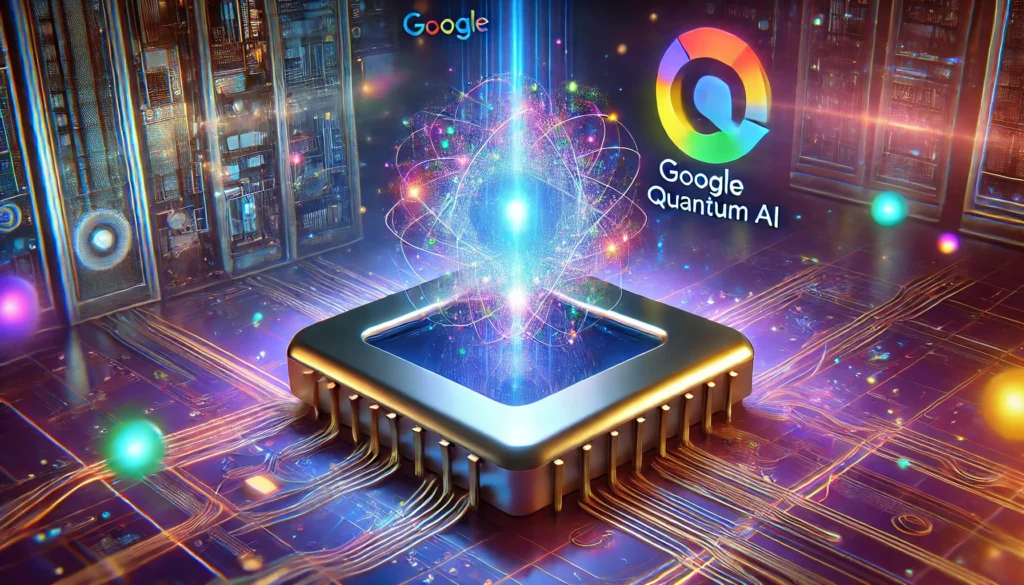
Quantum computing is no longer just a concept for sci-fi enthusiasts. It’s here, and it’s changing how we think about computation, problem-solving, and even reality itself. Google Quantum AI, led by Hartmut Neven, is at the forefront of this revolution. In this post, we’ll unpack some of the groundbreaking developments shared by Neven, from time crystals to quantum search, and explore how this emerging technology could redefine our future.
What Makes Quantum Computers So Special?
Today’s computers—your laptop or even the supercomputers in Google’s data centers—operate on binary logic, processing zeros and ones. Quantum computers, however, harness the principles of quantum physics, which means they work in a realm where particles can exist in multiple states simultaneously. This quantum phenomenon, called superposition, allows for computations to happen across “parallel universes.” Intriguing, right?
Parallel Universes and Faster Problem-Solving
Neven describes quantum computing as “farming out computations to parallel universes.” Imagine searching through a closet with a million drawers to find one item. A classical computer might take 500,000 steps on average, but a quantum computer could accomplish this in just 1,000 steps, leveraging its ability to explore multiple possibilities at once.
Quantum Wonders: From Time Crystals to Tiny Wormholes
The power of quantum computing lies not just in speed but also in its ability to simulate complex physical systems. Google Quantum AI has already achieved remarkable feats, including:
- Time Crystals: These are systems that change periodically over time without exchanging energy with their surroundings—like a perpetual motion machine allowed by quantum physics. (Bonus: Wouldn’t time crystal earrings sound fabulous?)
- Traversable Wormholes: Google created states that mimic wormholes, allowing them to study the physics of these theoretical cosmic shortcuts.
- Non-Abelian Anyons: These are quantum particles with bizarre properties, such as changing the system’s state when swapped—something unheard of in classical physics. Picture swapping two Lego bricks and suddenly seeing your model transform.
Quantum Algorithms: Unlocking Practical Applications
While much of quantum computing’s promise has been theoretical, Google Quantum AI is paving the way for practical uses. Some highlights include:
- Signal Processing for Molecule Detection: Imagine your phone acting as an “electronic nose,” identifying dangerous viruses in the air or allergens in food.
- Medical Breakthroughs: Quantum simulations could revolutionize drug development by better understanding enzymes like cytochrome P450, responsible for metabolizing 75% of the drugs we take.
- Sustainable Energy Solutions: From lightweight, fast-charging batteries to advanced fusion reactors, quantum computing could accelerate innovation in renewable energy.
The Road to Error-Free Quantum Computing
One of the biggest challenges in quantum computing is error correction. Today’s quantum computers have error rates of about 1 in 1,000 operations, but Google is working to reduce this to 1 in a billion by combining multiple physical qubits into logical qubits. This progress is part of their ambitious roadmap to build a million-qubit computer by the end of the decade.
Neven’s team has already hit two major milestones:
- Beyond Classical Computation (2019): They performed a task in 200 seconds that would have taken the fastest supercomputer 10,000 years.
- Scalable Error Correction (2023): Demonstrating the feasibility of reducing errors on a large scale.
Quantum AI Meets Consciousness: The Next Frontier?
Beyond computation, quantum physics could also unlock mysteries of the human mind. Neven and his collaborators are delving into quantum neurobiology, exploring whether consciousness arises from the collapse of quantum superpositions. If proven, this research could lead to expanding human consciousness in unprecedented ways.
What’s Next for Quantum Computing?
Quantum computing is not just a futuristic dream—it’s a rapidly evolving field with the potential to tackle humanity’s most pressing challenges, from climate change to better healthcare. Google Quantum AI’s advancements make it clear: the quantum era is upon us, and its possibilities are limitless.
Let’s Get Quantum!
💡 What are you most excited about in the world of quantum computing? Share your thoughts in the comments below!
📢 Don’t forget to share this post with your friends using hashtags like #QuantumComputing #GoogleAI #FutureTech.
